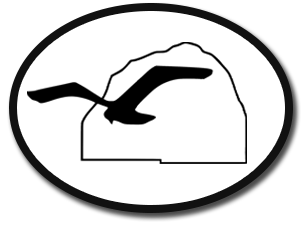Cognitive Impairment
The Elementary MOCI Program offers a non-discriminative environment for children generally ranging in age from 6 to 11 years of age. The primary focus is on daily academics including reading, writing, and mathematics. Skills are taught to each student’s level and ability. Another primary focus is on exploring and implementing functional communication systems.
The Intermediate MOCI Program addresses the needs of individuals generally ranging in age from 11 to 15 years of age. Academics are an important part of this program. Students work on academic activities that are based on the goals and objectives listed in their IEP. Students also have the opportunity to work with assistive technology and researched based reading and mathematics programs.
The Secondary MOCI Program offers services for students generally ranging in age from 15 to 20 years of age and begins the transition phase from academics to functional living skills. This program introduces daily living skills including laundry, cleaning, cooking, and practical applications of mathematic and reading skills.
The Transition House/Adult MOCI program provides services for students generally ranging in age from 20 to 26 years of age and provides opportunities for students to work toward their personal level of independence. The focus is on hands-on daily living skills, job experience and maintaining functional academics. Community education includes locating and accessing businesses and agencies in the community that are important in the student’s life.
- Grades/Credit is not given. Any student attending the Huron Learning Center CI programs for any part of their day will be on track for a Certificate of Completion.
- Students do not follow the general education curriculum; they follow the Huron Learning Center CI/SXI curriculum, which is an extended/alternative curriculum that is aligned with the general education curriculum.
- Students take the MI-Access Assessment, which is based on extended grade level content expectations. Students will take the appropriate Mi-Access Assessment (Functional Independence, Supported Independence, Participation) based on their individual functional ability This is the alternative to the MEAP. Further information about this assessment can be found at www.michigan.gov/mde. Click on the assessment and accountability tab on the left.
The Intermediate MOCI Program addresses the needs of individuals generally ranging in age from 11 to 15 years of age. Academics are an important part of this program. Students work on academic activities that are based on the goals and objectives listed in their IEP. Students also have the opportunity to work with assistive technology and researched based reading and mathematics programs.
The Secondary MOCI Program offers services for students generally ranging in age from 15 to 20 years of age and begins the transition phase from academics to functional living skills. This program introduces daily living skills including laundry, cleaning, cooking, and practical applications of mathematic and reading skills.
The Transition House/Adult MOCI program provides services for students generally ranging in age from 20 to 26 years of age and provides opportunities for students to work toward their personal level of independence. The focus is on hands-on daily living skills, job experience and maintaining functional academics. Community education includes locating and accessing businesses and agencies in the community that are important in the student’s life.
- Grades/Credit is not given. Any student attending the Huron Learning Center CI programs for any part of their day will be on track for a Certificate of Completion.
- Students do not follow the general education curriculum; they follow the Huron Learning Center CI/SXI curriculum, which is an extended/alternative curriculum that is aligned with the general education curriculum.
- Students take the MI-Access Assessment, which is based on extended grade level content expectations. Students will take the appropriate Mi-Access Assessment (Functional Independence, Supported Independence, Participation) based on their individual functional ability This is the alternative to the MEAP. Further information about this assessment can be found at www.michigan.gov/mde. Click on the assessment and accountability tab on the left.


